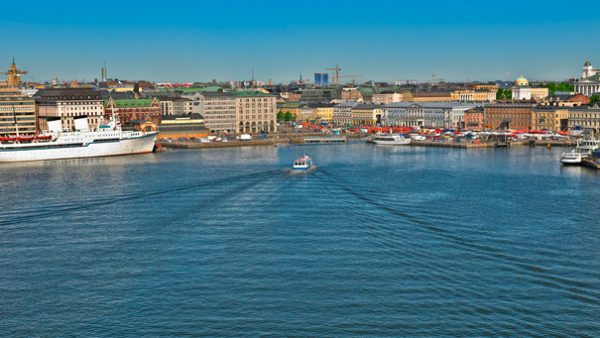It may be too cold to swim in for all but the hardiest but, thanks to heat pump technology, the River Clyde in Scotland will be tapped to provide heat for homes and other buildings in the town of Clydebank, just west of Glasgow.
Billed as Scotland’s first large-scale water-source heat pump scheme, the £15m project will see a 5MW district heating network established as part of the £250m Queen’s Quay regeneration.
Thanks to the chilly Clyde, hot water will be pumped through 2.5km of pipes to heat local homes, businesses and public buildings, including West College Scotland, Clydebank Leisure Centre, the Town Hall and Clydebank Library.
Vital Energi, the firm developing the scheme, told GCR that two heat pumps at Queen’s Quay will run refrigerant fluid in heat exchanger coils through water pumped from the river.
The refrigerant fluid absorbs this heat and produces gas, which, when it condenses, releasing its latent heat to create hot water in a low-carbon and renewable way.
Scott Lutton, Operations Manager for Vital Energi said: "This is a very exciting moment in the history of the Scotland’s energy infrastructure. While there have been small open water source heat pumps in the past, this is by far the largest to date."
He added he hoped it would "prove an inspiration to other local authorities who want to reduce their carbon emissions".
Local councillor Iain McLaren said the aim was to expand the district heating network to address fuel poverty by providing affordable heat to local residents.
Another councillor, Marie McNair, said: "The people of Clydebank will see the benefits of this pioneering project for generations to come."
West Dunbartonshire Council will meet 60% of the cost of the system, with the Scottish Government providing £6m through the European Regional Development Fund, via the Low Carbon Infrastructure Transition Program (LCITP).
Image: Shipping on the River Clyde, Scotland (dan kearny/CC BY-SA 3.0)










